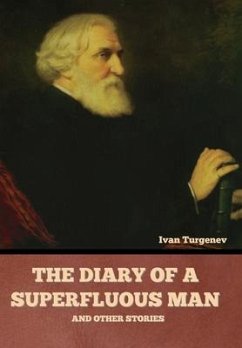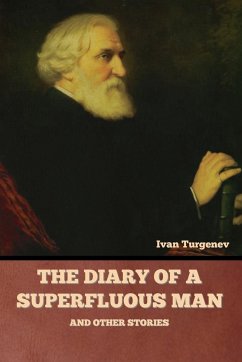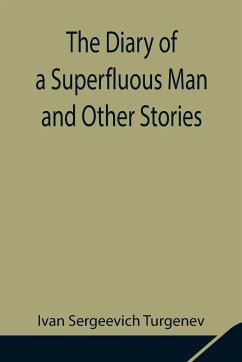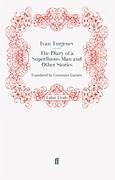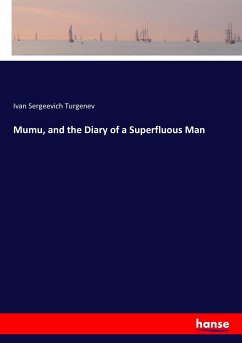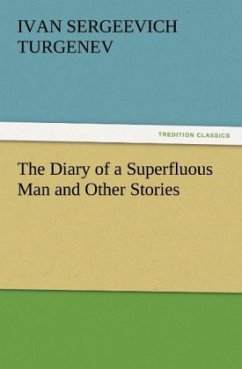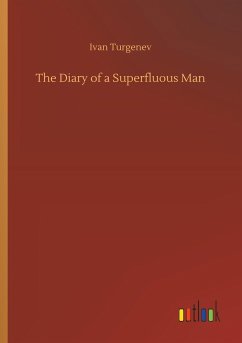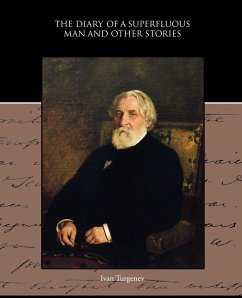
The Diary of a Superfluous Man and Other Stories
Versandkostenfrei!
Versandfertig in 1-2 Wochen
20,99 €
inkl. MwSt.
Weitere Ausgaben:

PAYBACK Punkte
10 °P sammeln!
Sergeevich Turgenev was a major 19th century Russian novelist. His novel Fathers and Sons is his best-known work. Stories in this collection include The Diary of a Superfluous Man, A Tour in the Forest, Yakov Pasinkov, Andrei Kolosov, and A Correspondence. The Diary of a Superfluous Man begins, "The doctor has just left me. At last I have got at something definite! For all his cunning, he had to speak out at last. Yes, I am soon, very soon, to die. The frozen rivers will break up, and with the last snow I shall, most likely, swim away ... whither? God knows! To the ocean too. Well, well, since...
Sergeevich Turgenev was a major 19th century Russian novelist. His novel Fathers and Sons is his best-known work. Stories in this collection include The Diary of a Superfluous Man, A Tour in the Forest, Yakov Pasinkov, Andrei Kolosov, and A Correspondence. The Diary of a Superfluous Man begins, "The doctor has just left me. At last I have got at something definite! For all his cunning, he had to speak out at last. Yes, I am soon, very soon, to die. The frozen rivers will break up, and with the last snow I shall, most likely, swim away ... whither? God knows! To the ocean too. Well, well, since one must die, one may as well die in the spring. But isn't it absurd to begin a diary a fortnight, perhaps, before death?"





